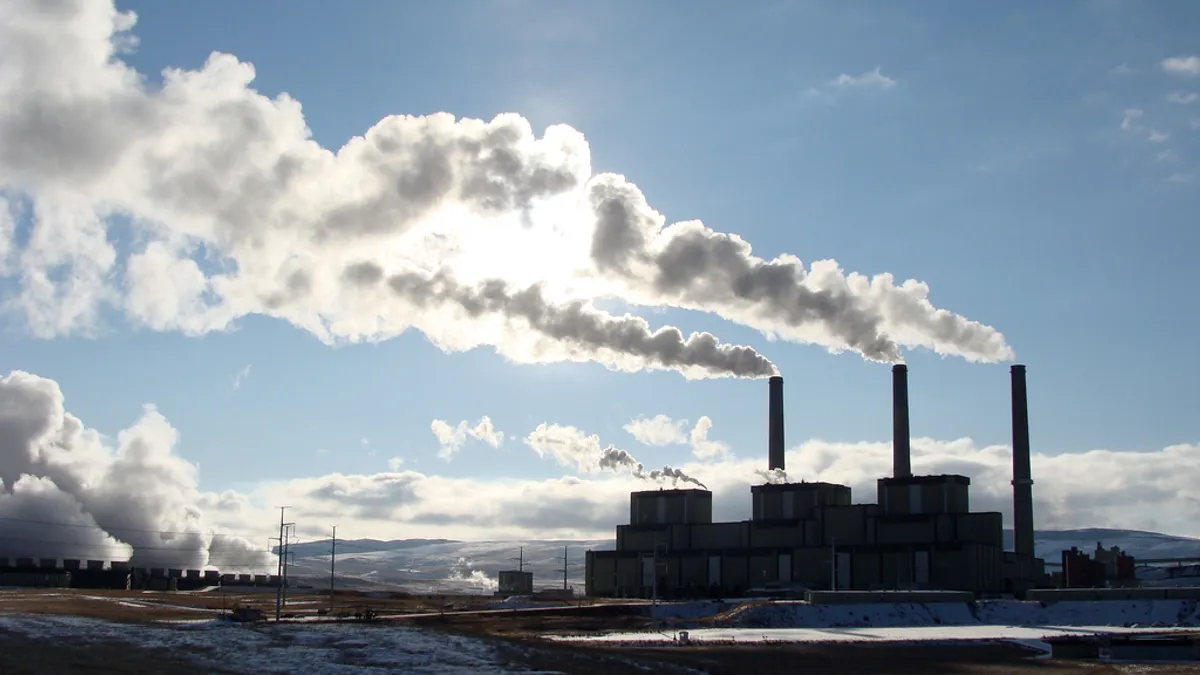Dive Brief:
- The Federal Energy Regulatory Commission (FERC) rejected Tri-State Generation & Transmission's first attempt to come under federal regulation, denying several of the utility's filings.
- The commission rejected Tri-State's rate tariff, an Open Access Transmission Tariff, an application for market-based rate authority, and 43 long-term wholesale electric service contracts, all without prejudice. FERC said the utility "did not provide sufficient cost support materials to justify the cost-of-service rate. For example, Tri-State's filing lacks sufficient data and work papers to review plant and expense balances."
-
The decision means Tri-State can refile, and the utility says it plans to address the issues "expeditiously." FERC's decision did not address issues of state-level regulation, or an objection raised by the Colorado Public Utilities Commission that Tri-State is hoping to avoid its oversight.
Dive Insight:
Tri-State remains undeterred by the commission's decision, while opponents hailed an early victory.
"First-time FERC filings are complex, especially for a wholesale power supply cooperative like Tri-State," Tri-State spokesperson Lee Boughey told Utility Dive in an email. "We are reviewing the order and will move expeditiously to address the issues raised by FERC."
Tri-State was previously exempt from FERC oversight because it is wholly owned by small cooperatives or public power districts, which the federal commission does not regulate. In September, however, the utility added a new member in an effort to come under federal regulation. Critics of the move say the utility is looking to protect a coal-heavy generation fleet from Colorado and other states' environmental goals.
The commission said Tri-State must submit a "complete explanation as to the method used in arriving at the cost of service allocated to the sales and services for which the rate is charged or proposed."
"Importantly, the order addresses the form and content of Tri-State's filing, and explicitly states that its decision does not address the merits of our filings nor the merits of any protests," Boughey said.
According to the Sierra Club, the rejection is significant.
"This was essentially an attempt by Tri-State to shop around for regulators that will allow it to hold on to a costly coal fleet and ignore demand from members for local, low-cost clean energy," Anna McDevitt, a senior representative for Sierra Club's Beyond Coal Campaign, said in a statement. "We're glad FERC saw through Tri-State's rushed and shoddy effort to cut corners at the expense of its customers."
Tri-State this summer announced plans to add renewables and cut back on coal-fired electricity. The utility's generation mix is about 50% coal, and it has faced criticism from member utilities who see cheaper and cleaner energy available in wholesale markets.
Tri-State serves customers in New Mexico, Colorado, Wyoming and Nebraska.
The utility previously told Colorado regulators that it "does not believe that FERC's regulation of Tri-State's wholesale rates will interfere with or preempt the [Colorado] Commission's ability to engage in legitimate resource planning activities within the state of Colorado."















